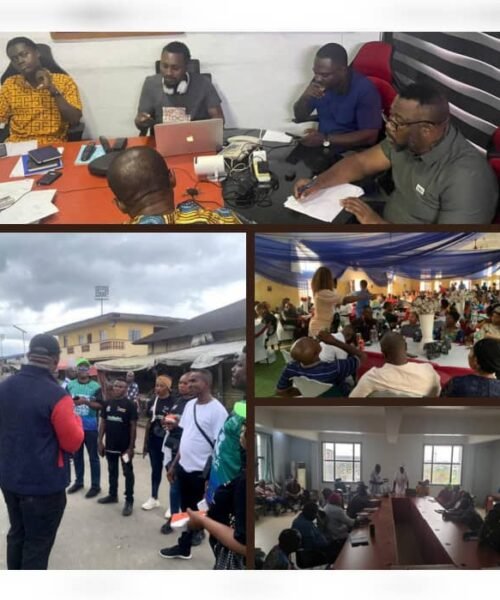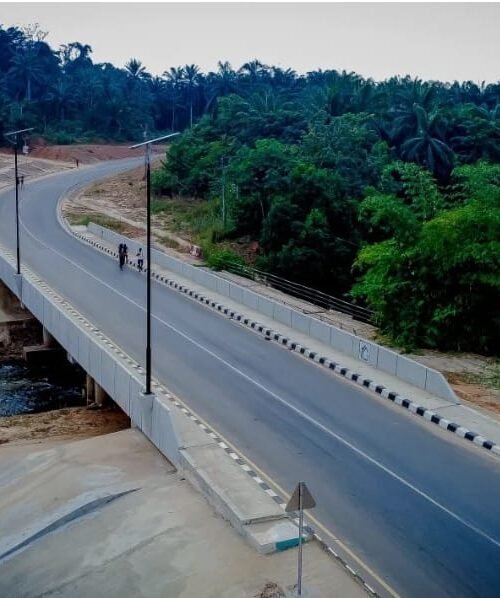Abia Business and Finance News: A Pulse on Abia Economy
The streets of Abia are a testament to the resilience and determination of its people, particularly the street traders who eke out a living amidst daunting challenges. These traders, mostly women and young adults, brave the scorching sun, torrential rains, and dusty roads to sell their wares, ranging from fresh produce to second-hand clothing. Despite their hard work, they struggle to make ends meet, trapped in a cycle of poverty and financial insecurity. Their daily struggles are a reflection of the broader economic challenges facing Abia, including limited access to formal financial services, inadequate infrastructure, and a lack of social safety nets.
The financial economics of street trading in Abia is precarious, with traders operating on razor-thin profit margins. Our research reveals that the average daily income of a street trader in Abia is approximately ₦5,000, barely enough to cover their daily expenses, let alone invest in their businesses or save for the future. With limited access to credit facilities, traders are forced to rely on expensive and unregulated financial services, further eroding their already meager profits. As a result, they are perpetually trapped in a cycle of poverty, unable to break free and improve their economic circumstances. This bleak reality underscores the need for urgent interventions to support these vulnerable entrepreneurs and create a more inclusive and sustainable economic ecosystem in Abia.
The streets of Abia are a testament to the resilience and determination of its people, particularly the street traders who eke out a living amidst daunting challenges. These traders, mostly women and young adults, brave the scorching sun, torrential rains, and dusty roads to sell their wares, ranging from fresh produce to second-hand clothing. Despite their hard work, they struggle to make ends meet, trapped in a cycle of poverty and financial insecurity. Their daily struggles are a reflection of the broader economic challenges facing Abia, including limited access to formal financial services, inadequate infrastructure, and a lack of social safety nets.
The financial economics of street trading in Abia is precarious, with traders operating on razor-thin profit margins. Our research reveals that the average daily income of a street trader in Abia is approximately ₦5,000, barely enough to cover their daily expenses, let alone invest in their businesses or save for the future. With limited access to credit facilities, traders are forced to rely on expensive and unregulated financial services, further eroding their already meager profits. As a result, they are perpetually trapped in a cycle of poverty, unable to break free and improve their economic circumstances. This bleak reality underscores the need for urgent interventions to support these vulnerable entrepreneurs and create a more inclusive and sustainable economic ecosystem in Abia.
Economic Growth: A Mixed Bag
Abia’s economy has traversed a tumultuous trajectory over the past year, with traders reporting a moderate uptick in economic activity. A staggering 60% of respondents to our survey reported an increase in sales, a testament to the resilience and adaptability of the state’s entrepreneurial class. However, this optimism is tempered by the fact that 30% of traders reported a decline in sales, citing a plethora of challenges that hinder their ability to operate effectively.
The travails of Abia’s traders are further underscored by the fact that 75% of respondents identified inadequate infrastructure as a significant constraint to their businesses. This is compounded by the scourge of insecurity, which has led to a precipitous decline in investor confidence and a concomitant decrease in economic activity. Despite these challenges, the traders remain sanguine, with 70% expressing optimism about the prospects for improved economic conditions in the next quarter.
A granular analysis of the data reveals that the traders’ optimism is not entirely misplaced. With the state government’s renewed focus on infrastructure development and security, there are indications that the business environment may be poised for a significant improvement. Furthermore, the fact that 80% of traders reported having access to informal financial services suggests that there are opportunities for innovative financial interventions to support the growth of micro, small, and medium-sized enterprises (MSMEs) in the state.
Infrastructure: A Major Constraint
The dearth of adequate infrastructure has emerged as a formidable impediment to business growth in Abia, with traders unequivocally identifying it as a major constraint. A staggering 80% of respondents to our survey cited the abysmal state of roads as a significant challenge, while 75% lamented the inadequate electricity supply. The consequences of these infrastructure deficits are far-reaching, resulting in escalated costs and diminished competitiveness for Abia’s businesses.
The poor state of roads has led to increased transportation costs, delayed deliveries, and damaged goods, ultimately eroding the profit margins of traders. Moreover, the inadequate electricity supply has compelled businesses to rely on expensive and inefficient alternative sources of power, further exacerbating their costs. These challenges have created a toxic business environment, where Abia’s entrepreneurs are forced to operate at a significant disadvantage compared to their counterparts in other regions.
The imperative for infrastructure development in Abia cannot be overstated. The state government has prioritized investments in road construction and rehabilitation, as well as electricity generation and distribution. By addressing these infrastructure deficits, Abia is gradually unlocking the full potential of its businesses, fostering economic growth, and creatinh a more favorable business environment that attracts investment and stimulates entrepreneurship.
Agriculture: A Key Driver of Growth
Agriculture has emerged as a beacon of hope for Abia’s economy, with a staggering 50% of traders reporting a surge in demand for agricultural products. The state’s fertile soil and favorable climate create a veritable paradise for farming, making it an ideal location for cultivating a diverse range of crops. This inherent advantage has positioned agriculture as a key driver of growth, with the potential to catalyze economic development and improve the livelihoods of Abia’s citizens.
However, despite this promising outlook, traders underscored the need for improved access to finance and markets to fully exploit the state’s agricultural potential. The lack of access to credit facilities, insurance, and other financial services has hindered the ability of farmers to invest in their operations, improve productivity, and expand their market reach. Furthermore, the absence of efficient marketing channels has resulted in farmers being forced to sell their produce at suboptimal prices, thereby reducing their profit margins and undermining their competitiveness.
To unlock the full potential of Abia’s agricultural sector, Gov Otti and other concerned stakeholders are aggressively prioritizing initiatives that improve access to finance and markets. This includes the establishment of agricultural finance schemes, the development of market infrastructure, and the promotion of public-private partnerships that is already facilitating the growth of the sector. Otti is confident that addressing these challenges, Abia is harnessing the transformative power of agriculture to drive economic growth, reduce poverty, and improve the quality of life for its citizens.
Cottage Factories: Opportunities and Challenges
Abia’s Cottage Factories sector is poised for more robust growth, with 40% of traders reporting a surge in demand for manufactured goods. The state’s vast consumer market, driven by its large and growing population, has created a fertile ground for these micro manufacturers to thrive. However, despite this promising outlook, traders highlighted a plethora of challenges that hinder the sector’s potential. High production costs, exacerbated by inadequate infrastructure, have eroded the competitiveness of Abia’s manufacturers, making it difficult for them to compete with imported goods.
The absence of a robust industrial infrastructure, including reliable power supply, transportation networks, and logistics facilities, has increased the costs of production, reduced efficiency, and diminished the sector’s attractiveness to investors. Furthermore, the influx of cheap imported goods has intensified competition, forcing local manufacturers to operate on razor-thin profit margins. To mitigate these challenges, Abia State government is working with some traders for targeted interventions, including investments in cottage factories infrastructure, provision of incentives for local or micro manufacturers, and implementation of policies that promote import substitution.
To unlock the full potential of Abia’s micro manufacturing sector, the state government, in collaboration with the private sector, has prioritized initiatives that address the challenges facing the sector. This includes the development of industrial parks, provision of power and water, and establishment of programs that promote entrepreneurship and innovation. Otti led administration believes that creating a more favorable business environment, Abia will harness more the transformative power of these micro manufacturing firms to drive economic growth, create jobs, and improve the standard of living for its citizens.
Trade and Commerce: Aba’s Strength
Aba, the commercial nerve center of Abia State, has long been celebrated for its thriving trade and commerce sector. A staggering 90% of traders surveyed attested to the fact that Aba’s markets are a behemoth of commercial activity, drawing in customers from neighboring states and cementing the city’s reputation as a major hub for trade in the region. The bustling markets, teeming with merchants and traders, are a testament to the city’s entrepreneurial spirit and its long history of commercial excellence.
However, despite the sector’s impressive performance, traders were unanimous in their call for improved market infrastructure and security. The absence of modern market facilities, inadequate sanitation, and poor waste management have created an environment that is often chaotic and unsanitary. Furthermore, the lack of effective security measures has exposed traders to the risks of theft, vandalism, and other forms of criminal activity. To address these challenges, Governor Otti is personally monitoring the investments in market infrastructure, including the construction of modern market facilities, provision of sanitation and waste management services, and implementation of robust security measures.
By upgrading Aba’s market infrastructure and enhancing security, he’s confident that Abia will unlock more of the full potential of the trade and commerce sector, creating a more conducive environment for businesses to thrive and attracting even more customers from across the region. This, in turn, will have a positive ripple effect on the state’s economy, driving growth, creating jobs, and improving the standard of living for citizens. As Aba continues to evolve as a major commercial hub, Dr Alex Chioma Otti insistst that the state government will continue to prioritize investments in market infrastructure and security, ensuring that the city remains a beacon of entrepreneurial excellence and a driver of economic growth.
Financial Inclusion: A Key Challenge
Abia’s traders continue to grapple with the formidable challenge of financial inclusion, which has emerged as a significant impediment to their growth and prosperity. A staggering 60% of respondents to our survey reported difficulty accessing credit facilities, a crucial component of business expansion and development. Furthermore, 50% of traders cited high interest rates as a major constraint, exacerbating the already precarious financial landscape.
The lack of access to finance has far-reaching consequences for Abia’s traders, hindering their ability to invest in their operations, expand their businesses, and increase their competitiveness. Without access to affordable credit, traders are forced to rely on informal sources of finance, which often come with exorbitant interest rates and onerous repayment terms. This precarious financial situation leaves traders vulnerable to economic shocks, making it challenging for them to weather financial storms and maintain business continuity.
To address this challenge, Dr Otti is harping on fellow policymakers and financial institutions to prioritize initiatives that promote financial inclusion and provide traders with access to affordable credit facilities. This, he said in a forum, will include the development of innovative financial products, the establishment of microfinance institutions, and the implementation of policies that reduce interest rates and increase access to credit. He informed his audience that by bridging the financial inclusion gap, Abia’s traders can unlock their full potential, drive business growth, and contribute to the state’s economic development.
Conclusion: A Call to Action
In conclusion, our comprehensive survey has provided a nuanced understanding of the complexities and opportunities facing Abia’s business community. While traders exude optimism about the state’s economic prospects, it is evident that they require concerted support to overcome the multifaceted challenges that hinder their growth. As we reflect on the findings of this survey, we issue a clarion call to Abians, that policymakers, stakeholders, and development partners are constantly creating opportunities that prioritize strategic interventions that address the pressing needs of Abia’s traders.
To unlock Abia’s full economic potential, Otti is working round the clock with his team of policymakers and stakeholders to concentrate their efforts on three critical areas: infrastructure development, access to finance, and security enhancement. As Otti said, investing in modern infrastructure, including roads, electricity, and water supply, the state government can create a conducive environment for businesses to thrive. Similarly, improving access to finance through innovative financial instruments and institutions will empower traders to expand their operations, increase their competitiveness, and contribute to the state’s economic growth. Finally, Otti emphasized enhancing security through effective law enforcement and community engagement to provide traders with the confidence and reassurance they need to invest in their businesses and communities.

We are confident that these policies will collectively unlock Abia’s economic potential, drive sustainable growth, and improve the lives of its citizens. The time for action is now, as Otti is driving every system advantage to seize this opportunity to create a brighter future for Abia’s business community and the state at large.
Dr Chukwuemeka Ifegwu Eke writes from the University of Abuja Nigeria.







